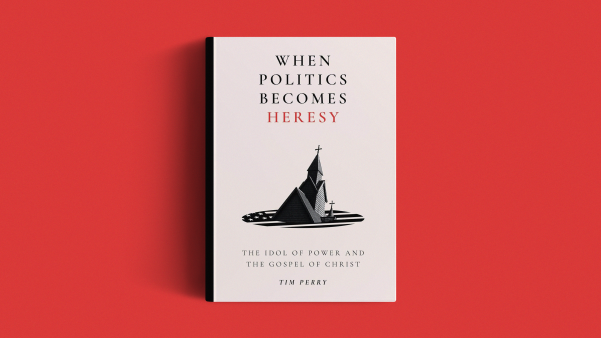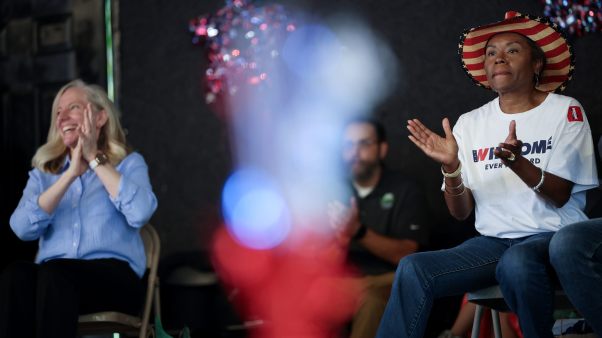Unless evangelical Christians learn from their 1986 political mistakes, 1988 could be their electoral Armageddon. And instead of blaming the press or other outside forces for the string of political election defeats, Christians need to examine their own propensity toward self-inflicted wounds. Christians lose at the polls for the same reason other candidates lose: They do not campaign intelligently.
Part of the problem, ironically, comes from our success. In 1976, Democrat Jimmy Carter would never have been elected President had he not garnered 56 percent of the evangelical vote. But once we discovered our power, we began to think an evangelical on the ballot would automatically bring out the born-again voting bloc. It just doesn’t work that way, as we learned in the ill-fated 1986 elections.
Questionable Tactics
It does not help much when Christian candidates seldom reach beyond the pew during their campaigns, framing issues in language that the broader constituency cannot understand. For example, in 1986 incumbent Congressman Mark Siljander of Michigan sent a tape to evangelical pastors in his district urging them to “break the back of Satan” and to repel the attacks against him. Predictably, Siljander’s opponent strongly objected to being compared with Satan, which, of course, was not Siljander’s intent. Nonetheless, the die was cast. Siljander himself conceded “… the tape did it.”
In that same election year, North Carolina incumbent Congressman Bill Cobey mailed a campaign letter exhorting fellow Christians to send him back to Congress “so our voice will not be silenced and then replaced by someone who is not willing to take a strong stand for the principles outlined in the word of God.”
Cobey’s phrases—politically risky against any foe—hurt his campaign even more since most voters did not understand his Christian terminology. In addition, his opponent was an active Southern Baptist with a divinity degree. Cobey’s opponent demanded an apology and got one. However, the damage proved irreparable.
It is little wonder, then, that Christians get filleted by the media and rejected by the electorate. Such mistakes not only discredit the gospel, but chase away potential voters.
On the other hand, Christians who ride more on political savvy than religious affiliation stand a better chance of being taken seriously. Oregon candidate Joe Lutz enlisted as many as 10,000 volunteers to help him nearly topple a respected 18-year senatorial incumbent. How? In addition to motivating evangelicals, Lutz made an effort to reach beyond his natural support among Christians and prolife activists.
Christians need to realize the political process is not a tool to evangelize the world.
As a result, ABC’S veteran political commentator Hal Bruno observed, “Here’s one conservative who happens to be a Christian rather than vice-versa.”
Beyond Ideology
My point is that we must look for substance along with ideology and then speak to those issues that concern more than Christians. Biblical heroes like Daniel, Joseph, Nehemiah, Esther, and Deborah were raised to positions of power, influence, and authority not simply because they were God’s people, but because they had something to offer the entire society. “When the righteous triumph, the people rejoice” (Prov. 29:2).
But to elect sound candidates, Christians need to understand the political process better. It is not a tool to evangelize the world, but a vehicle for bringing sound leaders into positions of responsibility in government.
Certainly Christians need to register and vote. In 1986, only 35.2 percent of the eligible electorate voted in the nation’s Senate races—the lowest turnout since World War II. Such a small turnout favors candidates with a small constituency, often allowing narrow ideological groups to overly influence candidates, as they did with Walter Mondale and Geraldine Ferraro. Even now, churches can mobilize their members to make sure they are registered for next fall’s elections.
Beyond that, Christians must be willing to form coalitions with others who support moral (not necessarily Christian) candidates. And it seems unwise to push a Christian into a race when a capable candidate—one who is sensitive to moral and religious issues—is already entered.
It is to be hoped that 1988 will not be the final chapter in an evangelical electoral resurrection. The movement has far from crested. It remains to be seen, however, if evangelical Christians can continue to be an effective force in America’s electoral process. If they are to be, they must do more than appeal to their own constituency.
By Bruce Hallman, communications consultant to Oregon Republican senatorial candidate Joe Lutz in 1986, and currently a political consultant in Washington, D.C.
SPEAKING OUT offers responsible Christians a forum. It does not necessarily reflect the views of CHRISTIANITY TODAY.










